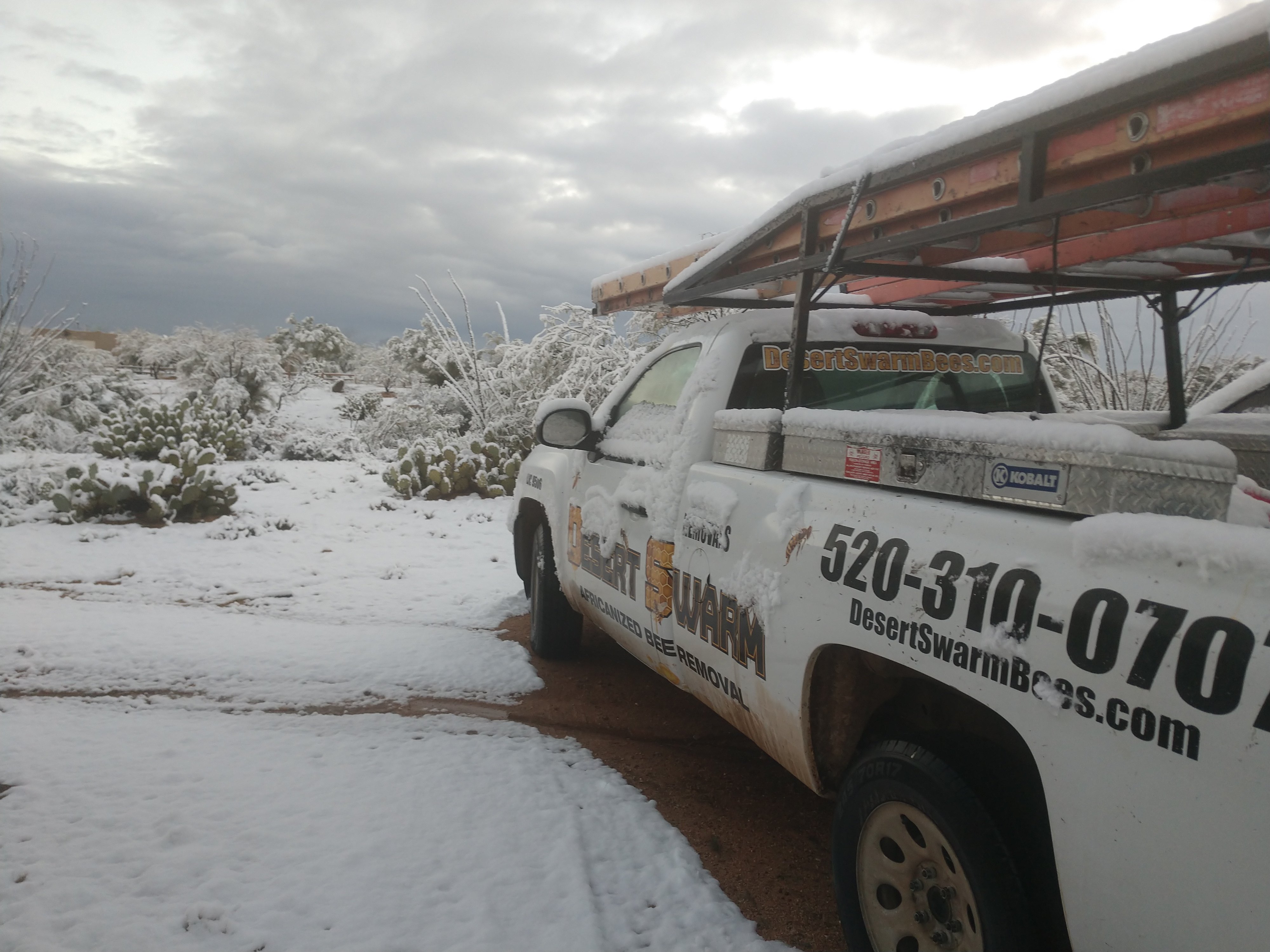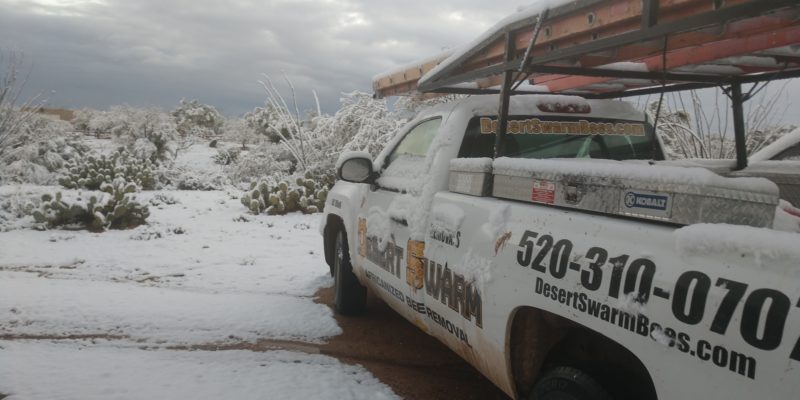by Allison Williams, Co-Owner of Desert Swarm Bee Removal LLC

Do you have a honey bee infestation? Don’t be fooled, they will not leave for the winter.
Honey bees slow down during cold weather and do not leave their hives often. This includes honey bee infestations in structures such as roofs, walls, sheds, and tree hollows. The lack of bee activity may lead a property owner to mistakenly think that the bees have left or died. However, once spring arrives, people are surprised to find very active honey bees at that same spot. In fact, the bees never left their hive! They only became less active outside of the hive during cooler weather. Honey bees are most active in spring and summer months creating a lot of buzz as they collect resources such as pollen, nectar, and water.
What do honey bees do during the winter?
Like most creatures, honey bees have to cope with the changes that come with winter weather such as cooler temperatures and fewer flowering plants. Although, here in the Desert Southwest, you will see bees venturing out to forage on warm winter days. If honey bees are not leaving their hives during winter, what exactly are they doing in there? Bees do not hibernate or sleep during the winter, instead they remain active inside the hive! Their primary purpose is to take care of their queen. Depending on how cold it gets, the worker bees form a cluster around the queen and keep her warm by vibrating their wing muscles. For this energy, they consume the honey that has been so dutifully stored before winter. The queen also slows down or stops laying eggs until late winter. Once spring rolls around, honey bees are once again building their population, collecting pollen and nectar, and storing honey!
What can I do to be prepared for spring?
If you suspect you have a honey bee infestation/hive on your property, please don’t wait until spring to find out. By that time, the beehive could be a larger issue for you. We recommend a property inspection and hive removal as soon as possible to prevent further damage and to eliminate safety risks associated with large potentially aggressive hives. If you have any questions, call us! We would love to inspect your property to ease your mind or to recommend the next steps for hive removal!





